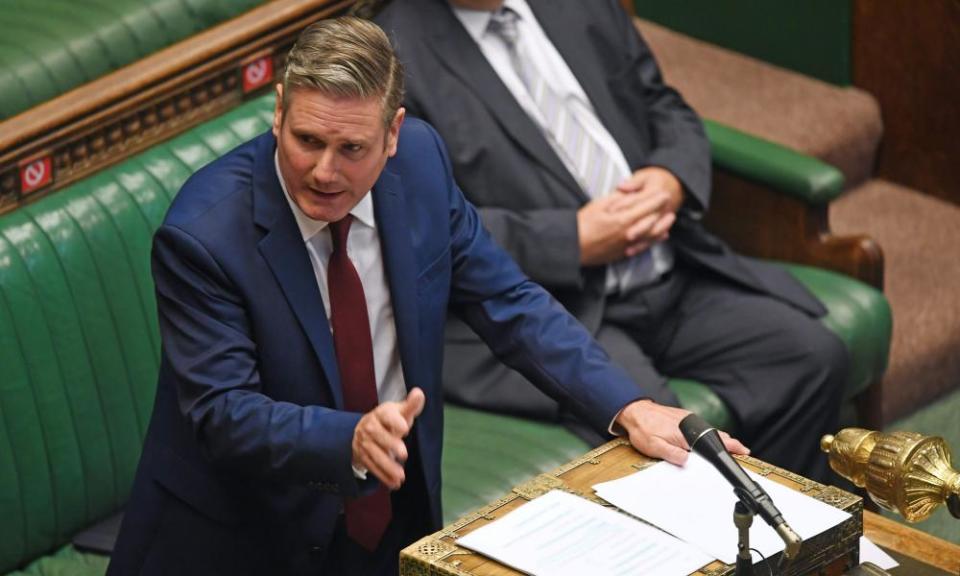The Guardian view on Keir Starmer: a very different kind of leader

Sir Keir Starmer’s first conference speech as Labour leader may not make many headlines. The news will be, understandably, dominated by new coronavirus restrictions. In the crisis Sir Keir recognised an opportunity to stamp his leadership on the party, saying it had deserved to lose at the last election while downplaying his own role in the loss.
Sir Keir, noticeably, reached out to former Labour voters who turned their backs on the party in 2019 by wrapping himself in a union jack. It was a risky address for a cautious politician. He is unlikely to have made such a speech from the dais of a conference hall, where reception from party members may have been muted at best and hostile at worst.
Yet Sir Keir was right to set out his stall, and to say that Labour should look to the future, not the past. His focus on properly funded universal public services, high-quality jobs and reducing inequalities signal that the party has not lost sight of its mission. But clearly, the message and the messenger have changed. He is almost certainly wrong to hint that Labour lost touch with ordinary family values but it may win him tabloid praise.
Similarly his pitch to “red wall” voters was made with a leftwing patriotism that has dared not speak its name in the party for a decade. The reason is electoral. Remainers and Jeremy Corbyn’s Labour party were seen, often unfairly, to have foreign, rather than national, interests at heart. But in towns where voters had forsaken Labour for the Tories, the question that Sir Keir did not address is why the civic-nationalist narrative was successful. Boris Johnson’s promise to restore “sovereignty” in the name of “the people” may be snake oil but such language broadened Tory support by suggesting a vote for the Conservatives would enable people to take back control of their lives. The Scottish National party sells independence in much the same way.
Voters often feel at sea in the modern world. Market societies have removed agency from many people’s lives, which explains the sense of alienation and anger found particularly in de-industralised parts of the UK. Such places have been reshaped without democratic consent by impersonal market forces. Since 2010 it has been the Conservatives and the SNP, rather than Labour, that have capitalised effectively on social insecurities. Sir Keir will need policies, especially economic ones, beyond championing a civic Britishness to outflank the nationalists. But his speech was distinguished by a lack of them.
The Labour leader says that winning people back takes time. This is true. The Covid lockdown revealed a sense of togetherness in society. People were prepared to put up with a surprising amount if everyone was in the same boat. When Mr Johnson’s chief adviser, Dominic Cummings, broke the lockdown with impunity, compliance with the rules fell rapidly away. Yet that solidarity remains, often bubbling away like hot lava just below the surface of political debate. Occasionally such sentiment erupts in public – for example, forcing Mr Johnson to prevent poor children from going hungry over the summer holidays.
The pandemic has meant a more active role for the state in the economy. Voters see public services as investments and redistribution is on the political agenda. Care for the elderly and jobs for the young are considered the government’s responsibility. Perhaps politics will revert to its pre-Covid shape. But that appears unlikely. Sir Keir is a sober, competent leader. But he must show he can sense – and tap – a popular demand for change.

